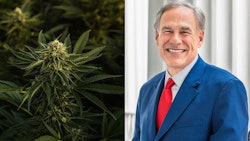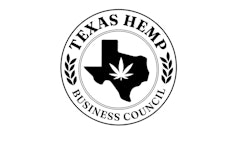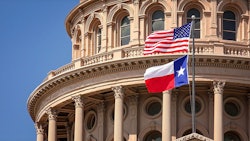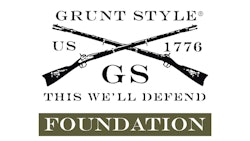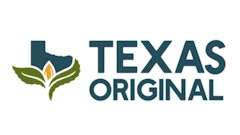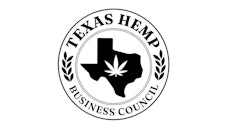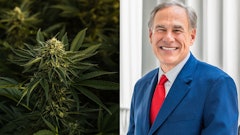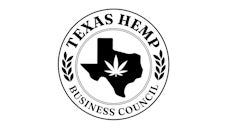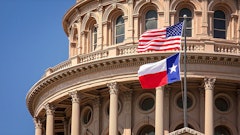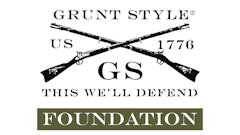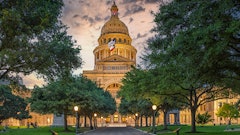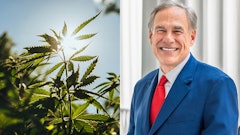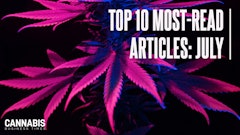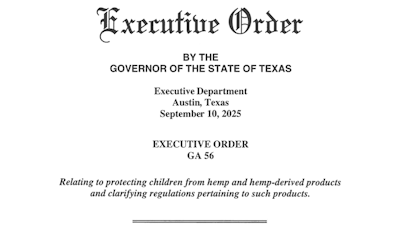
Texas Gov. Greg Abbott signed an executive order on Sept. 10 that directs three state agencies to implement polices to further regulate the state’s multibillion-dollar market for hemp products containing THC and other intoxicating cannabinoids.
The governor plans to utilize his executive powers after Texas Lt. Gov. Dan Patrick, the presiding officer of the state Senate, repeatedly ignored Abbott’s call for regulation in two special sessions and instead attempted to push a ban through the Legislature.
In his executive order, Abbott pointed out that Patrick and the Legislature failed to act.
“The Legislature did not pass any legislation concerning consumable hemp products, not even a ban for minors, leaving in place the status quo,” the governor wrote.
Now taking matters into his own hands, Abbott directed the Department of State Health Services (DSHS), the Alcoholic Beverage Commission (TABC) and the Department of Public Safety (DPS) to adopt, oversee and enforce regulations to help ensure hemp-derived products don’t end up in the hands of children and to allow those 21 and older to purchase product that meet specific consumer safeguards.
“Texas will not wait when it comes to protecting children and families,” Abbott said Wednesday in a pubic statement. “While these products would still benefit from the kind of comprehensive regulation set by the Texas Legislature for substances like alcohol and tobacco, my executive order makes sure that kids are kept safe and parents have peace of mind now, and that consumers know the products they purchase are tested and labeled responsibly.”
The executive order directs the TABC and DSHS to immediately begin a rulemaking process and calls for the following agency actions:
- DSHS and TABC must ban sales to minors and require verification of government-issued IDs at the point of sale, with failure to do so resulting in the loss of a retailer’s license.
- DSHS must review existing rules for possible revision, including strengthening testing and labeling requirements to ensure informed consumers, increasing licensing fees to facilitate enforcement, and improving recordkeeping to assist agency oversight.
- DSHS, TABC and DPS must coordinate and increase enforcement across the state, in partnership with local law enforcement agencies.
Furthermore, the order requires the DSHS to revise testing requirements to ensure tests measure the total delta-9 THC content, accounting for both delta-9 THC and THCA, and that products include a listing of the concentration of cannabinoids, a recommended serving size and applicable health warnings.
The total THC threshold deviates from the 2018 Farm Bill, which federally legalized hemp beyond state pilot programs. The farm bill omits the inclusion of THCA; however, nothing in the federal legislation prevents state governments from regulating hemp programs more stringently.
Also under Abbott’s executive order, the Texas DSHS would be responsible for strengthening recordkeeping requirements for all sales, as well as revising business application and renewal fees for hemp retailer and manufacturer licenses to cover the full regulatory and enforcement costs incurred by the state.
The DSHS and TABC will be responsible for enforcing laws and rules governing hemp-derived products, including compliance checks, special operations and seizure authority.
Abbott also directed the DSHS and TABC to work with the Texas A&M AgriLife Extension Service and other agencies to conduct a study on a comprehensive regulatory model similar to House Bill 309 that Rep. Briscoe Cain, R-Deer Park, filed Aug. 28 in the second special session.
The governor indicated that adopting the policy framework proposals from H.B. 309 would “provide a safe, transparent, and enforceable system that cracks down on abuse while preserving adult access to legal products.”
H.B. 309 would have:
- Criminalized selling hemp-derived products to children or marking, advertising or packaging those products in manners attractive to children;
- Prohibited retailers from selling hemp-derived products within 1,000 feet of schools, churches, playgrounds, homeless shelters, and substance abuse treatment facilities;
- Prohibited the retail sale of hemp flower and the manufacture or sale of hemp-derived products containing synthetic cannabinoids, such as delta-8 THC converted in a lab from CBD;
- Prohibited the sale of hemp-derived products mixed with alcohol, kratom, cava, tobacco or other similar substances;
- Required potency limits per serving and per package based on milligrams rather than percentage concentration (Abbott suggested 3 milligrams of THC);
- Required testing at every stage, from harvest to shelf;
- Provided enforcement mechanisms related to a licensing scheme and ongoing monitoring for manufacturers, distributors, and retailers, with the ability to cancel a license for those who violate state rules and regulations, as well as a civil cause of action for local prosecutors under the Deceptive Trade Practices Act; and
- Implemented a tax structure scaled to the amount of THC in a product, with revenue allocated to law enforcement, crime labs, and youth education and addiction services.
The DSHS, TABC and Texas A&M AgriLife Extension Service’s study must include a timeline for phased implementation of the proposed regulatory framework.
Lukas Gilkey, the CEO and co-founder of Texas-based Hometown Hero and a founding member of the Texas Hemp Business Council, said that he supports the governor.
“The governor just issued an executive order banning hemp products for purchase for anybody under 21,” Gilkey said in a video on X. “The reason that we’ve been told why this has never passed before is because it gave credibility to our industry, and then it was used against our industry for not having an age gate. That age gate is now in place. This is something that we’ve been pushing for years. We cannot thank the governor enough.”
Evading Patrick and Senate Republicans’ attempt to ban hemp THC products and instead being regulated under Abbott’s order “completely” legitimizes the Texas hemp industry, he said.











